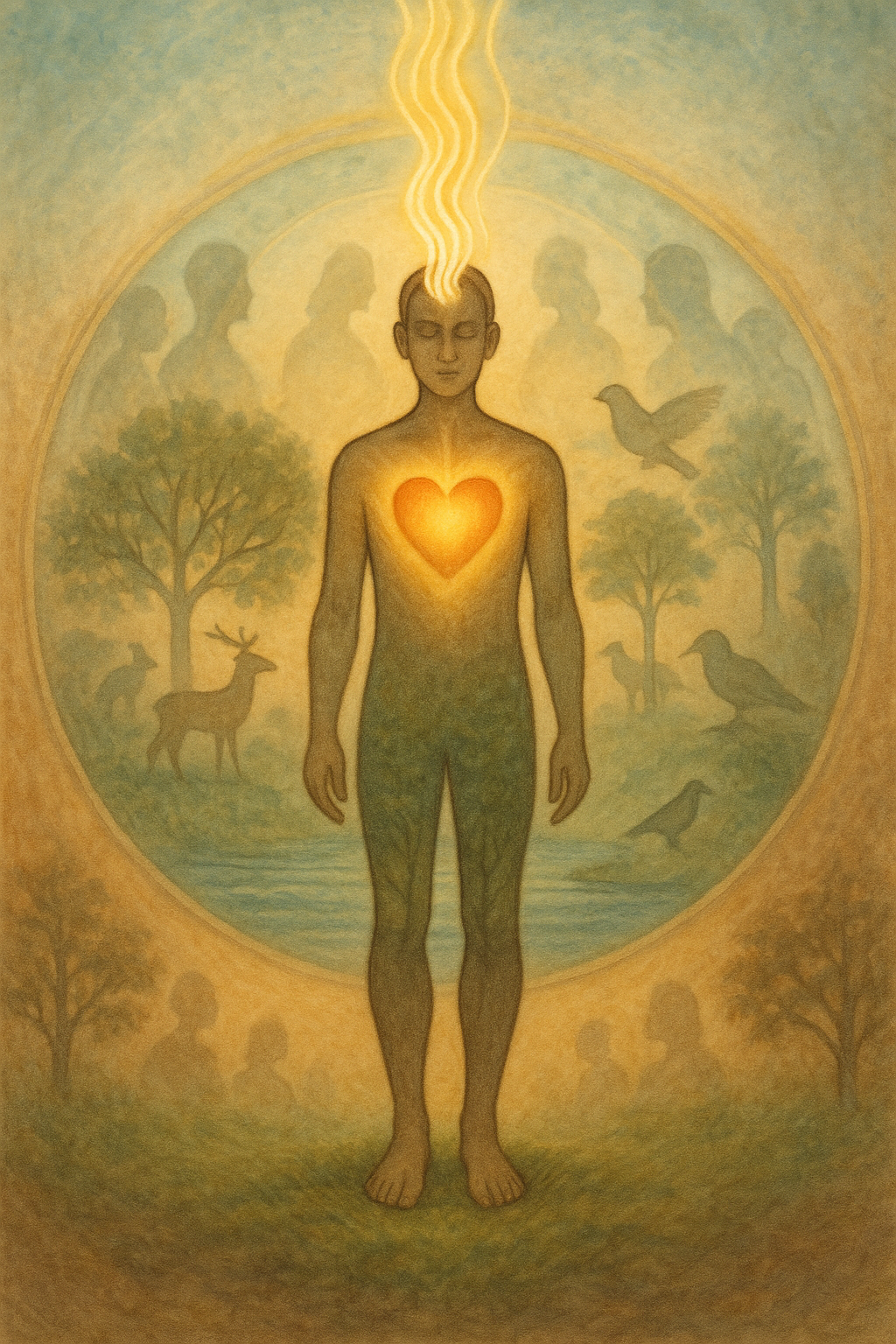Why Loyalty, Commitment, and Community Matter The ancestral roots of belonging and the dangers of…

Living Beyond Laws: The Embodied Integrity of Spirit and Soul
Living Beyond Laws: The Embodied Integrity of Spirit and Soul
How do we cultivate ethics that transcend the conditioned mind—moving beyond man-made laws, rules shaped by fear, and cultural constructs inherited through generations of survival?
The mind is a remarkable tool. It envisions, imagines, strategizes, and theorizes. Yet, it isn’t the sole source of wisdom; rather, it acts as a receiver and translator of it. True morality and genuine ethics cannot be constructed solely through mental intellect. They must be felt.
It is only through the experience of the heart, the breath, and the body—the raw sensations of life—that we begin to embody deeper truths. Our moral compass isn’t programmed by doctrines or decrees. It’s awakened in the stillness between thoughts, in the awareness that arises when we are fully present.
From Concept to Embodiment: The Feeling of Truth
We can contemplate kindness all day long, but until we feel the suffering of another or the harmony of connection, it remains a purely conceptual idea. This highlights a crucial distinction:
- Mind: Conceptualizes, analyzes, plans.
- Body & Heart: Experiences, feels, embodies.
The true integration of ethics occurs when our intellectual understanding is grounded in visceral experience. When we feel into our tensions and resistances, and engage deeply with our relationships, we awaken to higher truths and realities. This process unifies our perspectives, hearts, breaths, efforts, and our love for self, each other, and life itself. This isn’t just about what we believe; it’s about wholeness through being.
Integrity as a Living Practice
From this perspective, integrity is not a checklist or a performance—it is presence. It is the willingness to stand fully in the now—open, honest, and humble—and to act in alignment with the highest good of all, including ourselves and the Earth.
Integrity is:
- Not perfection, but sincerity.
- Not righteousness, but awareness.
- Not blind obedience to systems, but conscious attunement to what nourishes life.
It is born not from judgment, but from discernment—an inner knowing cultivated through feeling, through witnessing, and through choosing again and again to return to the center of our being. This continuous return allows us to perceive reality with greater clarity, unburdened by past conditioning or future anxieties.
A Spiritual Life That Embraces Our Humanity
To walk a spiritual path does not mean escaping our human nature; it means embracing it with compassion and reverence. Our body is not a burden on our spirit—it is the sacred instrument through which spirit is known, expressed, and lived.
Thus, to be in integrity is to be in presence. It means doing our best in each moment—not for praise or validation—but because life itself is sacred. When we live this way, our ethics evolve naturally:
- Not from control, but from communion.
- Not from fear of punishment, but from love of harmony.
- Not from obligation, but from remembrance of our interconnectedness.
This is the essence of wholeness—achieved through pure being, unconstrained by the limitations of belief. It’s in this unified state that we access higher realities, moving beyond intellectual constructs to a felt, lived truth.
Closing Reflection
What if we allowed our morals to arise from how we feel in the presence of truth, rather than what we were taught to believe about right and wrong?
What if the path of integrity was simply the path of presence, practiced over and over in the sacred messiness of being human?


